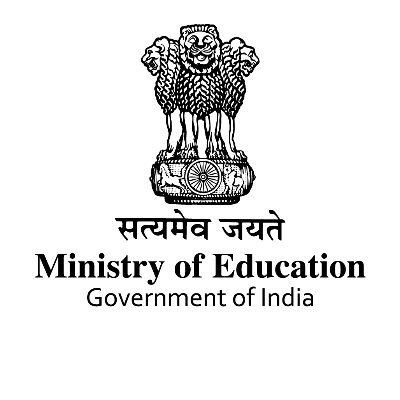Education is an important tool for national character building – Smt Annapurna Devi
Smt Annapurna Devi addresses the technical session on the theme- Quality and Sustainable Schools: Learnings from Schools in India

Prime Minister Shri Narendra Modi addressed the inaugural conclave of Shikshak Parv on 7 September, 2021 via video conferencing. The inaugural conclave was followed by a technical session on the current year’s theme: “Quality and Sustainable Schools: Learnings from Schools in India”. Smt. Annapurna Devi, Minister of State for Education was the chief guest on the occasion. The session was chaired by Dr. K. Kasturirangan, Chairman, National Education Policy Committee. Prof. J.S. Rajput Former Director, NCERT and senior officials of the Ministry were present on the occasion.
Speaking on the occasion Smt Annapurna Devi stated that the development of a nation is dependent on education as education is an important tool for national character building. Therefore capacity building of children is essential. She stressed that it is important that both teachers ad children learn together, they must also learn the local skills and acquire experience based learning to make education more relevant in present times. She also mentioned that quality and sustainability are two sides of the same coin. Smt Annapurna Devi hoped that the discussions and ideas that emerge out of this conclave will help in realising the vision of our Prime Minister of strengthening the education system of our country.
Sh. Kasturiangan appreciated the efforts of the Ministry of Education in organising this important conclave with the Prime Minister setting the tone of the deliberations for the forthcoming sessions and also lauded the initiatives that have been taken to realised the vision of NEP 2020. He also appreciated the efforts taken by Sh. Dharmendra Pradhan, Minister of Education for the steps taken by him to realise the goals of NEP in such a short span of time. He pointed out that owing to the outbreak of Covid 19 there were some disruptions as well as learning loss among children and hopes that many of these issues and challenges will be addressed during the conclave. He emphasised on focusing on four issues in this regard: Firstly, the Foundational Literacy and Numeracy is an important aspect mentioned in NEP 2020. Secondly, community engagement and support is also required to ensure that all children are retained in school. The thirds point is curricular transformation with regard to which the NEP focuses on lessening the burden so that there is more scope for other forms of learning. The fourth issue relates to the teachers who are central to the education system and have an important role to play in bridging the gap of learning loss. Thus restoring quality education and maintaining sustainability are the two major challenges, beside the challenges posed by the pandemic.
Prof. J.S. Rajput said there is a need to restore respect for teachers. He further said that, teachers must also remember that they must first know the child, understand the mind of the child and remember that nothing can be taught but learnt. Learning is the treasure within, teachers can only inspire the learners to realise the treasure from within, he added.
Prof. Rajput highlighted that there is a social responsibility of parents, principals, teachers and community to feel a sense of belonging towards the school. The pandemic has given us a chance to improve the environment of government schools in terms of access, security and quality of teaching, teacher student ratio, etc., he added. He concluded by saying that three things are very important to re- establish the glory of rich educational heritage of India in the world: Lifelong Learning, Learning to Learn and Learning to Live Together.
Prof. Sridhar Srivastava, Director, NCERT, welcomed the participants to the concluding session of the Conclave. He highlighted the active role played by NCERT during the pandemic situation by supporting the education in the online mode, developing teaching-learning resources such as the Alternative Academic Calendar, PRAGYATA Guidelines and NISHTHA 2.0 online training modules for supporting teachers. He further said that this year’s Shikshak Parv adopts a “whole-school” approach; one that extends beyond the curriculum and addresses the entire planning, operation and management of the school facility. He informed that the upcoming nine National Webinars during Shikshak Parv will focus on various themes that will help all those connected to the Parv learn from schools and teachers. NCERT will incorporate the learnings from schools into the National Curriculum Framework (NCF), which is under development at present, he added.
Smt. Anita Karwal thanked Smt Annapurna Devi, Dr. K. Kasturirangan, Prof. J.S. Rajput and all the speakers. She stated some of the initiatives taken by teachers are eye openers such as starting entrepreneurship for grade I, exposure of nature these are excellent examples of connecting learning to real life. There is need to build capacity of school, society and of parents to participate hand in hand to bring sustainability, she added.
